It was a funny old week. TEF and KEF results popped out with little fanfare, OfS announced a degree apprenticeship push and are getting on with the sexual misconduct survey (finally). We’ve got to hope the Government keep their receipts safe if they wish to claim the Horizon Europe guarantee refund – through a voucher discount for the next scheme (which we may or may not join). UKRI’s PGR new deal scheme gets a pasting and Minister Halfon sneers at the criticism that the Lords Committee dished out to the OfS. It’s a parliamentary recess for conferences so you can expect more politics and less policy in the news for the next couple of weeks!
Teaching Excellence Framework
The new TEF results were announced on Thursday for 228 providers, the remaining 23% (53 providers) are pending appeal. More detail will be provided in November when the provider submissions, panel statements, and student submissions are published (along with the outcome of the appeals). Once this is released we’ll have a fuller national picture of how institutions have engaged with TEF across the nation.
You can search the results here.
If you’re not familiar with TEF it’s changed a lot since BU received the previous silver award – since then there were lots of experiments and interim exercises. Wonkhe have an explainer: TEF now contains two “mini TEFs” – one covering student experience (the NSS metrics plus evidence from submissions) and the other covering student outcomes (continuation, completion, progression, plus evidence from the submissions. You get an award for each, which are then combined into your main TEF award
73 universities and colleges were awarded Gold for at least one aspect. Of the Gold ratings awarded:
- Ten are for what the OfS has categorised as “low entry tariff” providers. A further seven low tariff providers have been awarded Gold for one of the two aspects.
- Seven are for what the OfS has categorised as “medium entry tariff” providers. A further five have been awarded Gold for one of the two aspects.
- Ten are for what the OfS has categorised “high entry tariff” providers. A further eight have been awarded Gold for one of the two aspects.
- Nine are for specialist providers in creative arts subjects.
- Three are for specialist providers in other subjects. A further three have been awarded Gold for one of the two aspects.
It is interesting to see how little the new “requires improvement” award was used in practice – no-one received an overall RI rating and only a few had one aspect rated as requiring improvement. Which is good, of course.
Prior to the announcement Wonkhe questioned: But what – if anything – does TEF mean in a world of dwindling resources and acute student hardship? The 2015 Conservative manifesto that sparked the exercise was speaking to a different world, and it seems highly unlikely that anyone in power will use these results as a spur to praise the excellence and diversity in the sector.
What does it all really mean – we don’t know until we can read the submissions and the panel assessments.
Blogs:
KEF
Research England published the Knowledge Exchange Framework (KEF 3) results on Wednesday. If you’re unfamiliar with the KEF the best explainer is on the Research England website. KEF is a series of dashboards which summarise an institution’s performance on seven areas of knowledge exchange (or ‘perspectives’) – public and community engagement, research partnerships, working with business, working with the public and third sector, CPD and grad start-ups, local growth and regeneration, IP and commercialisation. If you scroll down to table 1 (on the webpage) you’ll see what activities are measured to provide the KEF judgement for each of the perspectives listed above. The data for the KEF is pulled from the Higher Education Business and Community Interaction survey.
For the KEF, institutions are grouped into “clusters” and results are compared across the cluster, with every institution being given a rating for each perspective based on which quartile it falls into in its cluster. Confused? Well yes, it is confusing!
For more coverage delve into:
- NCUB blog: What can the KEF tell us about university KE performance and improvement?
- Wonkhe blog analysing the KEF 2023 results across providers and clusters.
- Some good (if rather chatty) coverage from Research Professional (suitable for novices to KEF) in At KEF’s door. It begins:
- some of our readers may be old enough to remember when former universities and science minister Jo Johnson told the Universities UK annual conference that the KEF was “a challenge” that all universities “did not need to rise to”. The fact that the architect of the KEF did not expect all universities to take part in it has not prevented the entire sector from having a go …with the KEF: the large research-intensives of the Russell Group have their own group of death, and the specialist arts providers play among themselves….It’s all in a good cause, we are told, because obviously the Royal College of Music should not be compared with the University of Oxford when it comes to industrial research collaborations. Over the years, the KEF has developed a basket of metrics to allow meaningful comparison, to encourage institutional improvement.
- …[this] third instalment…leaves us wondering if anyone is enjoying this apart from the people who produced it.
- …Is the KEF driving improvement in knowledge exchange across the board or has it created another battleground for institutions to compete against one another? At the moment, Research England is sitting on the fence on that one.
- UKRI article: KEF3 gives insights on emerging trends in performance improvement
Research
Horizon Europe voucher refund. Following intervention from the Lords last week Science|Business have broken the news that the financial guarantee mechanism will only be implemented if the UK participates in the Framework Programme 10 Horizon successor programme (FP10). Underperformance against contributions in Horizon will be ‘refunded’ in the form of a voucher against FP10 participation. The guarantee assures the UK if they pay over 16% more in Horizon costs than they receive credit back through the voucher. Martin Smith, Head of the policy lab at the Wellcome Trust said the rollover clause is good news, because it lays the groundwork for the UK to take part in future framework programmes. “It’s setting up an expectation that participation is a long-term thing, which is great”. Full details here.
Wonkhe blog: With Horizon association secured, Maëlle Gibbons-Patoure takes us through the challenges, joys and practicalities of working with the world’s largest funding framework.
Quick News
- Consultations: REF 2028 planning continues to move forward. There are currently two consultations open for contributions – our tracker outlines who to contact if you wish to contribute to BU’s responses. Wonkhe have two blogs on the topic:
- Business links: Research Professional – the performance of very large universities with a major research focus has dropped slightly when it comes to linking with businesses, according to a major assessment.
- PGR New Deal: Wonkhe criticise UKRI’s new deal for PGRs, excerpts:
- If I thought the Office for Students’ work on student voice and engagement was weak, I wasn’t quite prepared for UKRI’s “New Deal” for PGRs…The trifecta of a pretty weak set of rights to start with, institutions that are trying to squeeze every last drop and effort and value from dwindling funding, and an environment in which PGRs think any attempt to enforce the rights that are there will result in perceived reputational damage when trying to build a career means that we really do need to work out how their “voice” can engender protection and change…As such, the “New Deal” for PGRs…is a real let down.
- …The “baseline” of support it’s thinking of establishing – over everything from supervision standards to mental health – ought to have a real relationship with quality frameworks from OfS and QAA, and government-backed work like the University Mental Health charter. That neither the Quality Code, OfS’ B Conditions nor Student Minds are mentioned doesn’t fill me with hope that PGRs will be properly considered
- …A genuine sector collaboration on the issue – drawing in providers, funders, regulators, the unions and actual PGR students – is long, long overdue. Read the short blog in full here.
Try this blog for a rundown on what the new deal includes or read the official version by UKRI.
Meanwhile the Russell Group issued a statement welcoming the new deal for PGRs.
- PGR stipends: UKRI to review stipend payments to improve support for postgraduate researchers.
- Spinouts (part 1): Wonkhe – Investment group Parkwalk has releaseda report on equity investment in UK university spinouts, finding that the total amount invested fell from £2.7bn in 2021 to £2.3bn in 2022, and “looks set to fall again in 2023.” However, the figure for 2022 was significantly higher than that of 2020 (£1.5bn) and all preceding years, and the number of spinouts over the last three years has been largely unchanged. Life sciences continues to be the main area for spinouts, though the report also highlights the growing importance of artificial intelligence-related companies. It’s also suggested that since 2021 there has been a decline in the proportion of investments exclusively from UK investors – historically around 80 per cent, but in the last two years at 64 per cent – with an increase in the share of UK-foreign co-investment deals. The Financial Times covers the report.
- Spinouts (part 2): Wonkhe – The government should introduce standardised agreements with universities regarding the equity shares they take from spinouts, the Social Market Foundation has argued in a new report – the think tank suggests five to ten per cent in companies founded by staff, and no share in student-founded firms. The report also suggests identifying regional hubs for high value industries, and scaling up the local universities with increased investment and research funding. The Times covers the report.
Lifelong Learning Entitlement
The Lifelong Learning Entitlement (LLE) became law last week, closely followed by the DfE publishing the modelling assumptions behind the LLE financial planning. It assumes learner numbers for modular programmes will start small.
Wonkhe say: There are also some very generous assumptions about costs incurred by providers and the modelling on which the Department for Education is basing the business case contains assumptions about staff time that many in the sector will find generous to the point of fantasy. There’s plenty of time for that to change because the LLE is only in the planning stages, it will be implemented from 2025 onwards. Blogs:
Regulatory
Cracking quality: Research Professional report on the announcement in the Sunday Times that Rishi Sunak is planning yet another “crackdown” on low-quality university courses as part of his pre-election reset of Conservative policies. However, they anticipate it to be more bark than bite: The last time the government rattled a sabre over low-quality university courses, the attack was all but abandoned by lunchtime as ministers struggled in media interviews to name a course or university that would be subject to restrictions. We can expect a line or two about Mickey Mouse degrees in Sunak’s conference speech in Manchester next week, but little more in the way of action from a regulator licking its wounds following the Lords select committee report that criticised the Office for Students as too close to government.
Of course, the government already announced how it was tackling low quality courses earlier in September – through the regulatory system.
In favour: Universities Minister Robert Halfon responded to a comment in the Financial Times defending the university sector and trotting out a reminder of his pet projects (degree apprenticeships, lifelong learning entitlement, cracking down on low quality courses). What was most interesting in the response was Halfon’s dismissive mention of the Lords inquiry which heavily criticised the OfS. Halfon states: while I recognise there is always more to be done to reduce regulatory burdens, the Office for Students is an essential part of our mission to drive up the quality of higher education by holding universities to account, championing students’ interests and improving social justice. It’s a strong indication that the Government’s response to the Lords formal report won’t call for significant change or rebuke the regulator publicly.
Sexual Misconduct: The OfS launched a pilot survey aiming to identify how widespread sexual misconduct in HE is. They’ve commissioned independent research by IFF Research who will work with the 13 HEIs that put themselves forward for the pilot. All students at the HEIs will be invited to complete the survey and answer questions about their experiences of sexual misconduct, how these experiences have affected their lives and studies, and their experiences of using the reporting mechanisms in their university. Note, this is the fieldwork element of the pilot survey announced in January 2023 (here).
Wonkhe highlight a warning for the sector regarding what the pilot may find: this pilot survey should offer some insight into the scale of the issue facing institutions and what kind of support students might need…At a Wonkhe event last week, academic and founding member of The 1752 Group Anna Bull warned that the sector should prepare for the discovery that the scale of sexual misconduct is higher than anticipated – smaller-scale prevalence surveys have indicated that around one in five students in any given year may be affected, and up to two-thirds of students during their time enrolled in higher education. These students are predominantly, though not exclusively, women – and perpetrators are typically other students at the same institution. Replication of these findings could change the picture considerably for how institutions seek to tackle the problem, encourage reporting, support survivors, and handle alleged incidents.
Blogs on the topic:
Degree Apprenticeships: The OfS have earmarked £40 million (awarded through competitive bidding) for HEIs to expand their Level 6 degree apprenticeship programmes.
Apprenticeship levy: There’s a parliamentary question on the total amount of unspent apprenticeship levy and the funds returned to the Treasury.
Cooperation: the Office of the Independent Adjudicator for Higher Education has signed a memorandum of understanding with Ofqual agreeing to work together and share information in order to meet their respective responsibilities in the HE sector.
Student News
- Turing: Parliamentary Question revealing the DfE cannot currently calculate the actual average cost to the public purse per participant supported by the Turing Scheme in each academic year. And that data on the international mobilities delivered in the first year of the Turing Scheme (2021/22) is coming soon.
- Accommodation: Wonkhe – Cushman and Wakefield’s annual student accommodation report highlights the brewing “student accommodation crisis” – with average private sector rents outside of London now at 77% of the maximum available maintenance loan. Fewer than one in ten spaces are now affordable for the average student, with university cities including Durham and Exeter offering even less affordable housing. Overall average rental costs have risen by more than 8% this academic year – driven by a growth in demand, rising operational and development costs, high inflation, and fewer new spaces available. The Guardian has the story.
- Student support: Wonkhe have a neat blog looking at student support across the four nations and which students/parents get the best deal for their household income. HEPI also published a paper earlier this month on how different institutions are approaching student support with cost of living.
- Loan forgiveness: It feels as though one organisation or another calls (or writes about) the need for student loan forgiveness for nursing (and often other allied health disciplines) every week. This week it’s the BBC’s turn covering calls for the loans to be written off once the student has completed 10 years of NHS service, although much of the article focuses on non-completion of training. The research behind the BBC’s article comes from a Nuffield Trust report: Waste not, want not. Nuffield state the estimated cost would be somewhere in the region of £230 million for nurses, midwives and allied health professionals per cohort in England. A similar scheme, or early-career loan repayment holidays for doctors and dentists in eligible NHS roles, should also be seriously considered. We believe this would represent a very sound investment.
- Meanwhile the Royal College of Midwives highlight a report which finds that midwifery degree apprentices improved accessibility and retention within the workforce. There were lower drop outs (almost 0%) than through a traditional degree route (13%) – likely influenced by the majority of apprentices already holding positions in the maternity support workforce. And the programme was also found to support diversity, both in terms of supporting mature apprentices and those with caring responsibilities, and those from non-white backgrounds.
Admissions
A Levels: The Times reported that Rishi Sunak plans to replace A levels with a British baccalaureate qualification incorporating more subjects including compulsory English and his manifesto committee of maths to age 18. The extension of compulsory maths already has an expert advisory group looking into it. Dods report that the DfE have not denied Rishi’s proposals are being explored but that they had already reformed post-16 education (T levels and apprenticeship changes) and that the baccalaureate policy was a personal mission for Rishi, not the DfE.
Sector response to the possibility of replacing A levels has been dismissive. The concept faces many barriers because it would require significant infrastructure change for the educational curriculum, the overcoming of the maths teacher shortage, and the policy has to convince not only the DfE but also the electorate in the upcoming general election. Even if adopted it may polarise education in the nations further as Wales and Northern Ireland may choose to retain their current systems.
Here’s a comment from Research Professional on the baccalaureate:
- Just as with the seven recycling bins, all of this can be filed in the category of never going to happen. Even if Sunak were to win a general election, the teacher shortage would make such a curriculum impossible.
- Universities have not been consulted on replacing A-levels and there are no details on the changes that would need to be made to both GCSEs and higher education admissions to make any of this possible. Given how long it would take for these wholesale reforms of English education, it is almost as if Sunak himself has no real expectations of any of it happening.
What is interesting is the timing of this announcement. We’ve entered conference season and the political parties and party leadership need to be seen to make bold changes for the future demonstrating both their worth and that of their party – positioning it well in the electorate’s eyes for the forthcoming general election.
The party conferences are staggered so we’ll provide coverage across the next few policy updates.
Finally, Lord Willets weighs in on the A level debate in this Conservative Home blog: Why Sunak is right about A-levels and what should be done next.
Quick news
- Recruitment caps: Wonkhe blog – Northumbria SU’s Tom Wellesley is concerned that the government’s plansfor recruitment caps on “low-quality” courses will restrict opportunities for prospective students.
- New UCAS Chief: Dr Jo Saxton steps down as Chief Regulatory of Ofqual (in Dec 2023) to become the Chief Executive of UCAS (in Jan 2024 – replacing Clare Marchant). Recruitment for her Ofqual replacement has begun. Education Secretary Gillian Keegan said: I am hugely grateful to Jo for guiding Ofqual through the challenges that followed the pandemic, ultimately overseeing a smooth return to exams and normal grading. Jo’s knowledge and experience have been invaluable as we’ve navigated the past 2 years and returned to the exam arrangements that best serve young people. I look forward to continuing to work with Jo in her new role at UCAS, supporting students to progress onto university, degree apprenticeships and the world of work.
Access & Participation
Parliamentary Question: Care leavers’ access to HE.
TASO published: Student mental health in 2023 – Who is struggling and how the situation is changing. It highlights more and more students are experiencing (or reporting) mental health difficulties and looks at how gender, LGBTQ+, ethnicity and student background factors interact with poor mental health. It also highlights mental health as the leading reason to withdraw from university. If you don’t fancy reading all 32 pages check out the conclusion starting on page 27 or read Research Professional’s analysis of the TASO paper which also delves into university resources and the Government’s attention to student mental health to provide a rounded picture.
International Recruitment
The Big Issue reports on international recruiters: £500 million is being spent by UK universities on a murky and unregulated industry. Education agents, who are paid a commission for each international student they enlist, are involved in 50% of international student admissions in the UK. In some countries such as China, this number reaches 70%. Twenty years ago the figure was just 10%. So who are they, and why are they now so widespread? The article is timely given Lord Jo Johnson’s call for international recruiters to be regulated and for HE providers to diversify their international portfolio to reduce financial risk and alleviate security concerns about the influence of overseas nations.
Inquiries and Consultations
Click here to view the updated inquiries and consultation tracker. Email the contact listed against the item you’re interested in (or policy@bournemouth.ac.uk) if you’d like to contribute to any of the current consultations.
Other news
Skills shortages: The DfE published the 2022 employer skills survey demonstrating that 10% of employers have a skill shortage related vacancy. Skills shortages as a proportion of all vacancies rose from 22% in 2017 to 36% in 2022. 15% of employers stated they had an employee (or employees) who lacked the skills for the job and overall 5.7% of the workforce have a skills gap (up from 4.4% in 2017).
Subscribe!
To subscribe to the weekly policy update simply email policy@bournemouth.ac.uk. A BU email address is required to subscribe.
External readers: Thank you to our external readers who enjoy our policy updates. Not all our content is accessible to external readers, but you can continue to read our updates which omit the restricted content on the policy pages of the BU Research Blog – here’s the link.
Did you know? You can catch up on previous versions of the policy update on BU’s intranet pages here. Some links require access to a BU account- BU staff not able to click through to an external link should contact eresourceshelp@bournemouth.ac.uk for further assistance.
JANE FORSTER | SARAH CARTER
VC’s Policy Advisor Policy & Public Affairs Officer
Follow: @PolicyBU on Twitter | policy@bournemouth.ac.uk

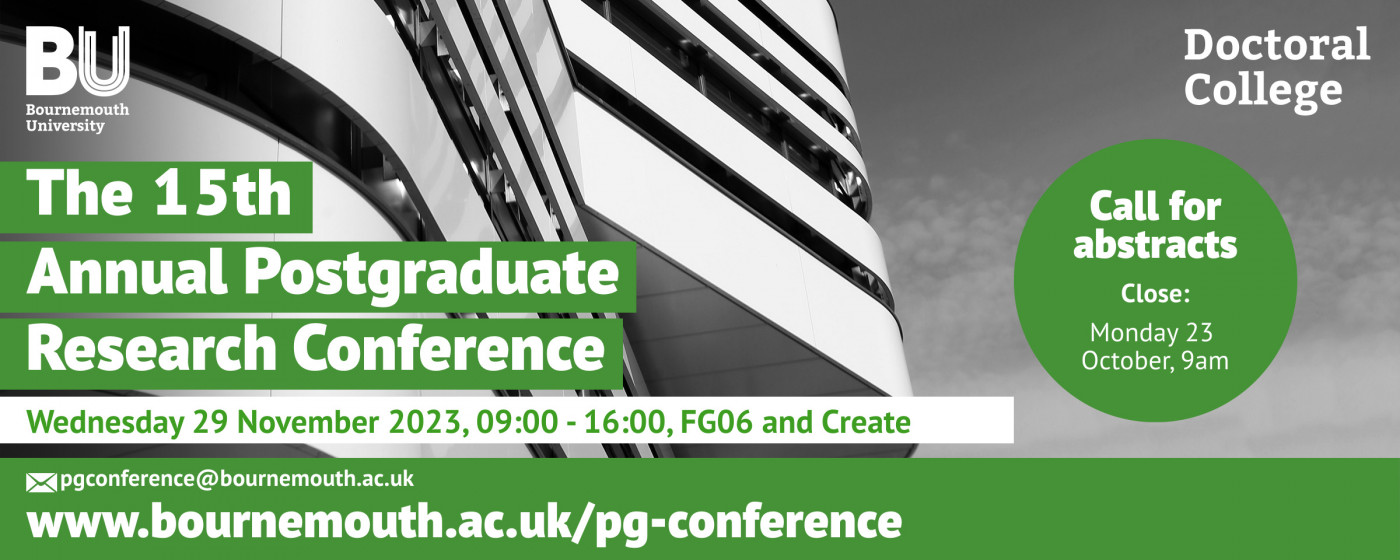

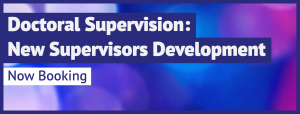
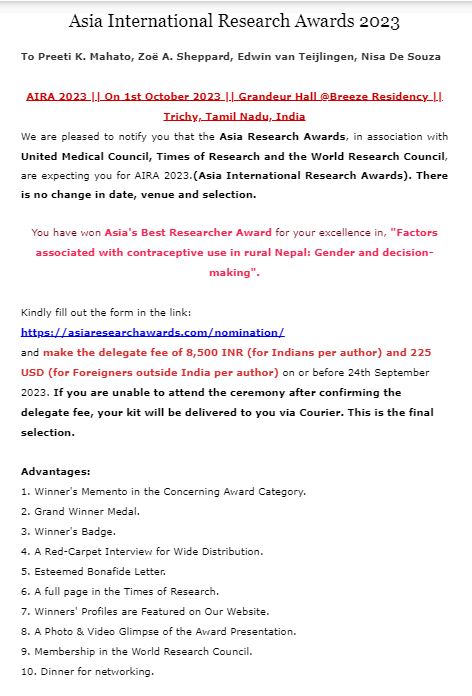

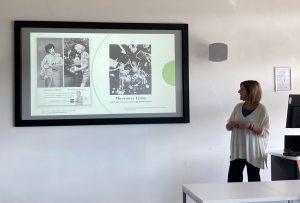
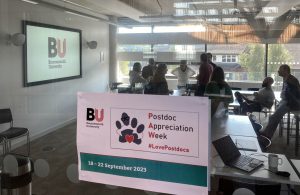
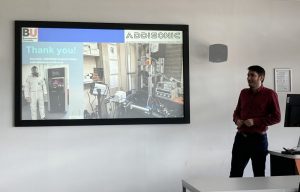
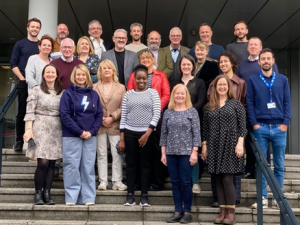



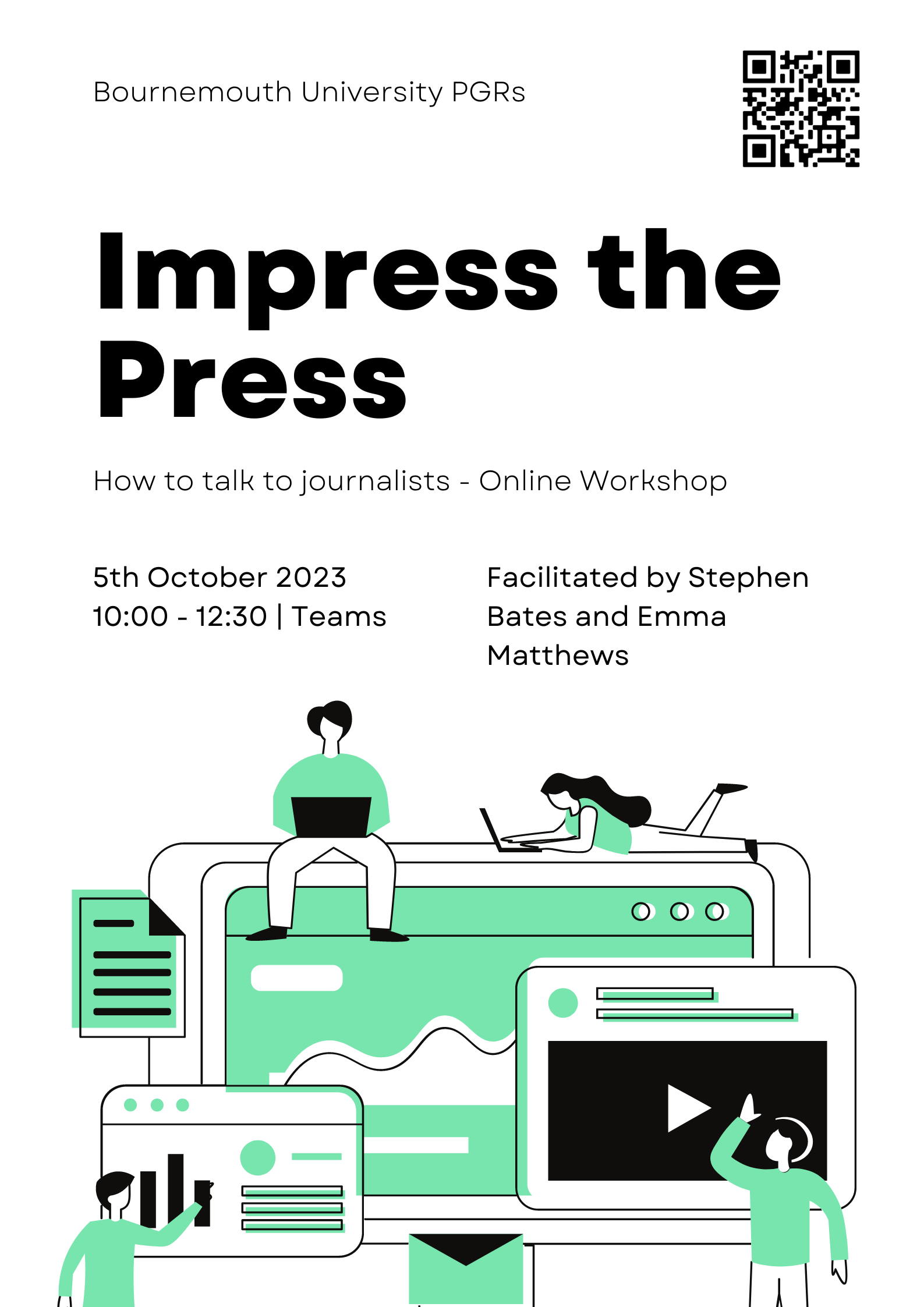


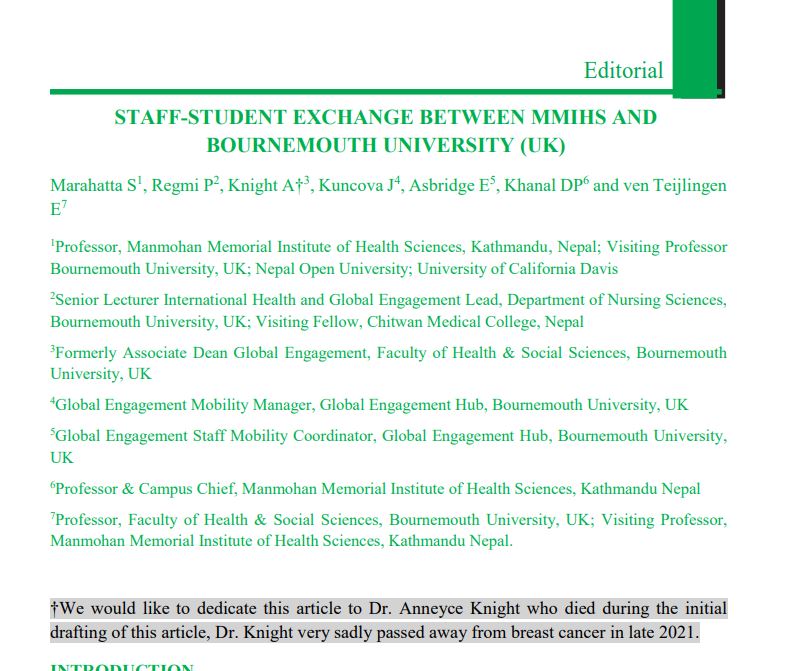
 How can we shape a better future for ourselves and the planet? Join us on Tuesday 5 September 6:30-8pm for an evening of inspiring talks and discussions with postgraduate researchers from Bournemouth University, all currently working towards their PhDs, who will share their insights and perspectives.
How can we shape a better future for ourselves and the planet? Join us on Tuesday 5 September 6:30-8pm for an evening of inspiring talks and discussions with postgraduate researchers from Bournemouth University, all currently working towards their PhDs, who will share their insights and perspectives.











 Seeing the fruits of your labour in Bangladesh
Seeing the fruits of your labour in Bangladesh Exploring Embodied Research: Body Map Storytelling Workshop & Research Seminar
Exploring Embodied Research: Body Map Storytelling Workshop & Research Seminar Marking a Milestone: The Swash Channel Wreck Book Launch
Marking a Milestone: The Swash Channel Wreck Book Launch No access to BRIAN 5-6th February
No access to BRIAN 5-6th February ECR Funding Open Call: Research Culture & Community Grant – Application Deadline Friday 12 December
ECR Funding Open Call: Research Culture & Community Grant – Application Deadline Friday 12 December MSCA Postdoctoral Fellowships 2025 Call
MSCA Postdoctoral Fellowships 2025 Call ERC Advanced Grant 2025 Webinar
ERC Advanced Grant 2025 Webinar Update on UKRO services
Update on UKRO services European research project exploring use of ‘virtual twins’ to better manage metabolic associated fatty liver disease
European research project exploring use of ‘virtual twins’ to better manage metabolic associated fatty liver disease